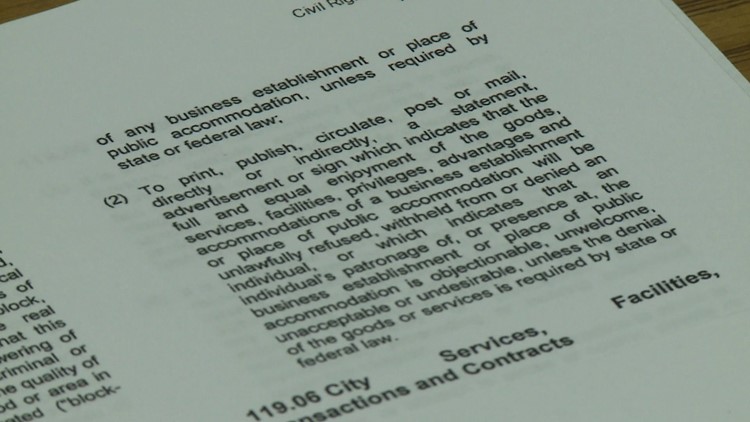FAYETTEVILLE (KFSM)- Supporters of Fayetteville’s Ordinance 119 have rented buses to shuttle voters to polling places in Tuesday’s special election on whether to repeal the ordinance.
The ordinance prohibits local businesses and entities from discriminating against employees and customers based on gender, race, sexual orientation, gender identity, religion and other factors. The Fayetteville City Council passed the ordinance in August, but a group that opposes it gathered enough signatures to force a special election.
Keep Fayetteville Fair, a group that supports keeping Ordinance 119 on the books, has rented two buses from St. Paul’s Episcopal Church, according to Anne-Garland Berry, Keep Fayetteville Fair’s campaign organizer. The buses will pick up voters from two locations on the University of Arkansas campus. One of the buses will be on the corner of Dickson Street and Duncan Avenue. The other will be on the corner of Leverett Avenue and Maple Street, Berry said.
Volunteers will also use their personal vehicles to take voters to and from their polling places, Berry said.
The group also shuttled voters using buses rented from St. Paul’s Monday (Dec. 8), the last day of early voting in the Ordinance 119 special election. Keep Fayetteville Fair rented the buses after the University of Arkansas canceled a similar shuttle service that had been organized by a student organization, Berry said.
The Associated Student Government Graduate Student Congress at the university passed a resolution to appropriate money for the shuttle service for all students, regardless of whether they intended to vote for against repeal of the ordinance, according to a news release from the student group. However, the shuttle service was canceled Dec. 6 by Daniel Pugh, vice provost of Student Affairs, according to an email from Pugh.
Pugh’s email stated the shuttle was canceled because “proposed and actual communications issued by GSC or its representatives have made it clear that the funding is intended to support voting in favor of a particular side in the referendum,” which, Pugh concluded, would violate state law that prohibits spending public funds to support or oppose a ballot measure.



